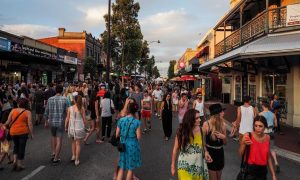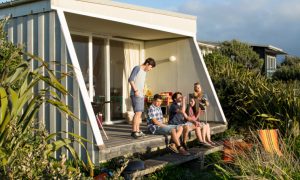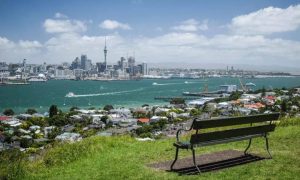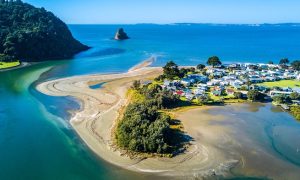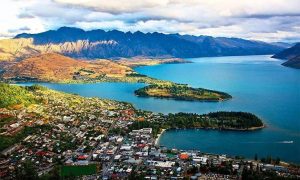New Zealand's beautiful natural environment, high quality of life and friendly social atmosphere have attracted many people toOverseas Immigration. But forimmigrantsFor applicants, the issue of cost is a central factor that must be considered.Immigration to New ZealandHow much does it cost? From visa application to cost of living, this article will provide you with a detailed breakdown of the various visa fees and the cost of living after immigration to help you plan your budget.
I. Visa Fees in Detail
New Zealand offers several immigration pathways, and the cost varies widely by visa type. Below is an analysis of the main costs of common immigration visas for 2025:
1. skilled migrant(Skilled Migrant Category)
Skilled migration is the most popular form of immigration to New Zealand and is suitable for applicants with professional skills and work experience.
- Expression of Interest (EOI) Fee: NZ$530 (about Rs. 2,400).
- Visa Application Fee: NZ$3,310 (approximately RMB 15,000).
- Other related costs: Includes English exams (e.g. IELTS, about RMB 2,000) and academic certification (about RMB 1,500).
- total cost: The overall application fee for skilled migrants is around 20,000 to 25,000 RMB.
2. investment immigration(Investor Visa)
investment immigrationSuitable for high net worth individuals, there are two types in 2025:
- Investor 1 (High Value Investment Visa): NZD 10 million investment required with no additional application fee.
- Investor 2 (General Investment Visa): The application fee is NZ$5,210 (approximately Rs. 23,600) and the financial threshold is NZ$3 million.
In addition.investment immigrationThere are also legal fees, fund audits, and overall costs of up to several million RMB.
3. Family reunification immigration (Family Category)
Family reunification visas are available to spouses, children and parents of New Zealand citizens or permanent residents.
- Spouse and Child Visa Fees: NZ$2,130 (approximately RMB 9,600).
- Parent Reunification Visa Fees: NZ$3,310 (approximately RMB 15,000) for a single applicant.
Family class visas are relatively inexpensive, but applicants are required to meet financial sponsorship and health requirements.
4. Entrepreneur Visa
Entrepreneurial immigration is suitable for people who plan to run a business in New Zealand.
- Visa Application Fee: NZ$4,990 (approximately Rs. 22,600).
- Minimum investment amount: Entrepreneurial immigrants are required to invest a minimum of NZ$100,000 in the operation of their business.
Overall costs vary depending on the size of the business.
5. Student visa and work visa pathway immigration
Immigration to New Zealand through study or work visas is another possible route:
- Student Visa Fees: The application fee is NZD 395 (approximately RMB 1,800).
- tuition fee: Annual tuition fees for international students range from NZ$20,000 to NZ$35,000 (approximately RMB 90,000 to RMB 160,000).
- Graduate Worker's Visa Fees: The application fee is NZ$750 (approximately RMB 3,400).
This type of pathway is suitable for young people, with a higher upfront investment but a better chance of migration.
Two,Immigration to New ZealandPost-cost-of-living analysis
Immigration costs are just the first step, the cost of living after landing in New Zealand is also an important part. Below is an overview of some of the major living expenses:

1. Housing costs
- rent an apartment: Rent in New Zealand varies from city to city, and is higher in major cities such as Auckland, where the monthly rent for a two-bedroom apartment is around NZ$2,500 to NZ$3,500 (approximately RMB 11,500 to RMB 16,000).
- buy a house: In 2025, the average house price in New Zealand will be about NZ$850,000 (about Rs. 3.9 million). Home buyers will also have to pay property tax and agent fees.
2. Daily living expenses
- foodstuffs: Food prices are high in New Zealand, with monthly household food expenses ranging from about NZ$800 to NZ$1,200 (approximately RMB 3,700 to RMB 5,500).
- transportation: The cost is about NZ$150 (about $700) per month if you use public transportation, or more if you buy a car, which usually costs between NZ$5,000 and NZ$15,000 for a used car.
- medical care: The New Zealand public healthcare system provides free or low-cost healthcare to residents who pay for health insurance, which can range from about NZ$50 to NZ$150 per month.
3. Cost of education
- public school: For immigrant families, public schools are essentially free, subject to a small endowment fee.
- college: Tuition fees for local students are lower, at around NZ$6,000 to NZ$9,000 per year (approximately Rs. 27,000 to Rs. 40,000).
4. Other expenditures
- Recreation and Leisure: New Zealanders love the outdoors, and monthly recreational expenses vary from person to person, usually ranging from NZ$200 to NZ$500 (approximately RMB900 to RMB2,300).
- utilities: The average is NZ$200 per month (about $900).
III. Recommendations for budgetary planning for migration
- early savings: Before immigrating, it is recommended to have at least 300,000 RMB for visas, airfare and initial living expenses.
- Choose the right city: If you want to reduce the cost of living, choose a city with relatively lower rents and prices, such as Hamilton or Dunedin.
- Seek professional advice: Hiring an immigration agent or consultant can increase the success rate of an application, and although it will increase expenses, it can reduce potential risks.
- Understanding Tax Policy: New Zealand adopts a progressive tax system, and proper tax planning can reduce the pressure on family finances.
concluding remarks
New Zealand immigrationA certain level of financial means is required, from visa applications to daily living costs, with expenses varying depending on the type of visa chosen and the individual's lifestyle. Overall, the cost of immigration and cost of living in New Zealand is high, but its excellent social benefits, educational resources and natural environment make it all worth the investment.

Hopefully, through the comprehensive analysis in this article, you have a clearer understanding of how much it costs to immigrate to New Zealand. If you are planning to immigrate, please budget and prepare well in advance, which will help you move towards your new life more smoothly!

